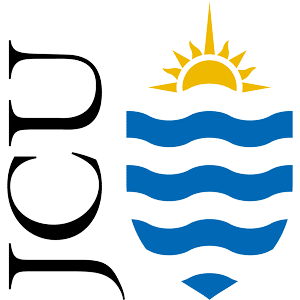The best Master of Business Administration programs for the health services industry.

An MBA in Healthcare Management is for rising managers in the healthcare industry. Participants learn general management skills while also studying health-specific topics such as services planning and delivery, clinical governance, and managing quality and patient safety.
Australia's best health MBA online programs each offer something different, whether it is a well-rounded curriculum, affordability and flexibility, or unique skills that may give you a career edge. For each degree listed, you can study part-time online as a working professional.
1. UTS Online
MBA (Health)
The flexible MBA from UTS Online offers a specialisation in Health. The 100% online program consists of 12 subjects, with 8 core subjects and 4 electives. For the Health major, select your electives from a menu of 8 health-related subjects.
- Choose 4 out of 8 healthcare electives.
- Well-rounded MBA to develop essential managerial skills.
-
Learn to be a Health Manager with UTS
An MBA in Health is a Master of Business Administration degree with a focus on the healthcare industry. Participants develop skills to manage and lead teams that are responsible for helping patients by delivering services, medical treatments, and products. The UTS program develops universal management abilities, balanced with knowledge and skill development in health services administration. It is a complete program for health managers.
Healthcare units cover planning and evaluating services, information management, leadership, and managing quality, risk and costs. This forward-looking MBA also explores business analytics, digital marketing, strategy and negotiation, and finance for managers.
2. SCU Online
MBA (Health Services Management)
The affordable online MBA from Southern Cross University offers a Health Services Management specialisation. Students do a health industry project and two healthcare units. Electives cover building a professional portfolio, leading change, governance, and strategic planning.
- Affordable MBA program.
- Designed for working professionals.
-
Quality at a low cost with SCU
The online MBA from Southern Cross University is popular because it offers high-quality education at a relatively affordable price. Tuition fees for this degree are set at $3,080 per unit in 2024, approximately 25% to 40% less than comparable programs in Australia. Quality is not compromised, with the program efficiently managed and delivered on a modern online learning platform.
Program duration depends on how much credit you receive for advanced standing. Core subjects include marketing, finance for managers, communication, and organisational behaviour. Students do one subject at a time in 7-week study blocks, with no exams.
3. RMIT Online
MBA (People Analytics)
People analytics is the use of data to improve workforce management and outcomes. It's an ideal MBA specialisation for health managers aiming to optimise staff performance and decision-making. In this RMIT program, you learn to analyse staff data to boost efficiency and care quality.
- Explores technology, analytics and digital trends.
- Excel in innovation and data-backed leadership.
-
Gain Unique Skills at RMIT Online
Managers in hospitals and clinical settings need to prioritise staffing for operational efficiency and patient safety. The People Analytics MBA at RMIT University will help you excel as a healthcare manager. It uniquely prepares you to use data in staffing decisions, improve team dynamics, and strategise workforce management for superior patient care.
The core courses of this fully online degree include leadership and management, design thinking for business, strategy, and financial analytics. The People Analytics major focuses on Human Resources Management. It is suitable for roles such as Clinical Unit Manager or Hospital Manager.
MBA in Public Health

A strong grasp of public health policy and practices is valuable throughout the health sector, a point highlighted by pandemic experiences. You can develop expertise in public health as part of your Master of Business Administration studies.
UTS Online - MBA (Flex - Public Health)
UTS Online offers a flexible MBA that gives you the ability to construct your own Public Health specialisation. The 100% online program consists of 12 subjects, with 8 core subjects and 4 electives. Public Health electives are: Fundamentals of Epidemiology, Foundations in Public Health, Indigenous Public Health, Global Health Systems, Health Promotion, and Planetary Health. The MBA is for contemporary business leaders, with a modern take on topics such as marketing, leadership, and data-driven decision making. You can work full-time while studying for the degree online.
Related: Master of Public Health Online in Australia
Nursing Leadership and Management

A cheaper alternative to an MBA, the Master of Nursing (Leadership and Management) is perfect for nurses moving into management and leadership positions. Graduates perform roles such as nurse unit manager, nursing coordinator, health services manager, or health facilities manager.
JCU Online - Master of Nursing (Leadership and Management)
The online Master of Nursing at James Cook University offers a Leadership and Management focus for future health managers. You'll study topics like health leadership, ethics in management, business finance, and resolving conflicts in healthcare. It's all online, designed for registered nurses. The program spans 12 subjects over less than 2 years. You tackle a new topic every 2 months. This setup suits those balancing study with a full-time job.
Related: Masters of Nursing Online in Australia
Why Get an MBA (Healthcare Management)?

Australia has high demand for healthcare managers, and an MBA specialising in this field is an excellent way to progress your career. The MBA is an iconic degree. Combining it with health sector content positions graduates for high-paying executive roles in agency and hospital management.
Demand for health services is on the rise, leading to more managerial jobs. With a projected employment increase of 15.5% in Health Professions in the 5 years to 2028, the future looks bright for MBA graduates in this sector. Pay statistics also reveal:
- the average annual salary for health managers is around $130k
- clinical managers earn an average salary of $120k per year
- nurse unit managers earn an average salary of $129,140 per year.
The qualification not only opens the door to higher salaries but also to making an impact. You gain the skills to lead teams and improve patient care. It's a step towards influential positions, offering both personal and professional fulfilment.



